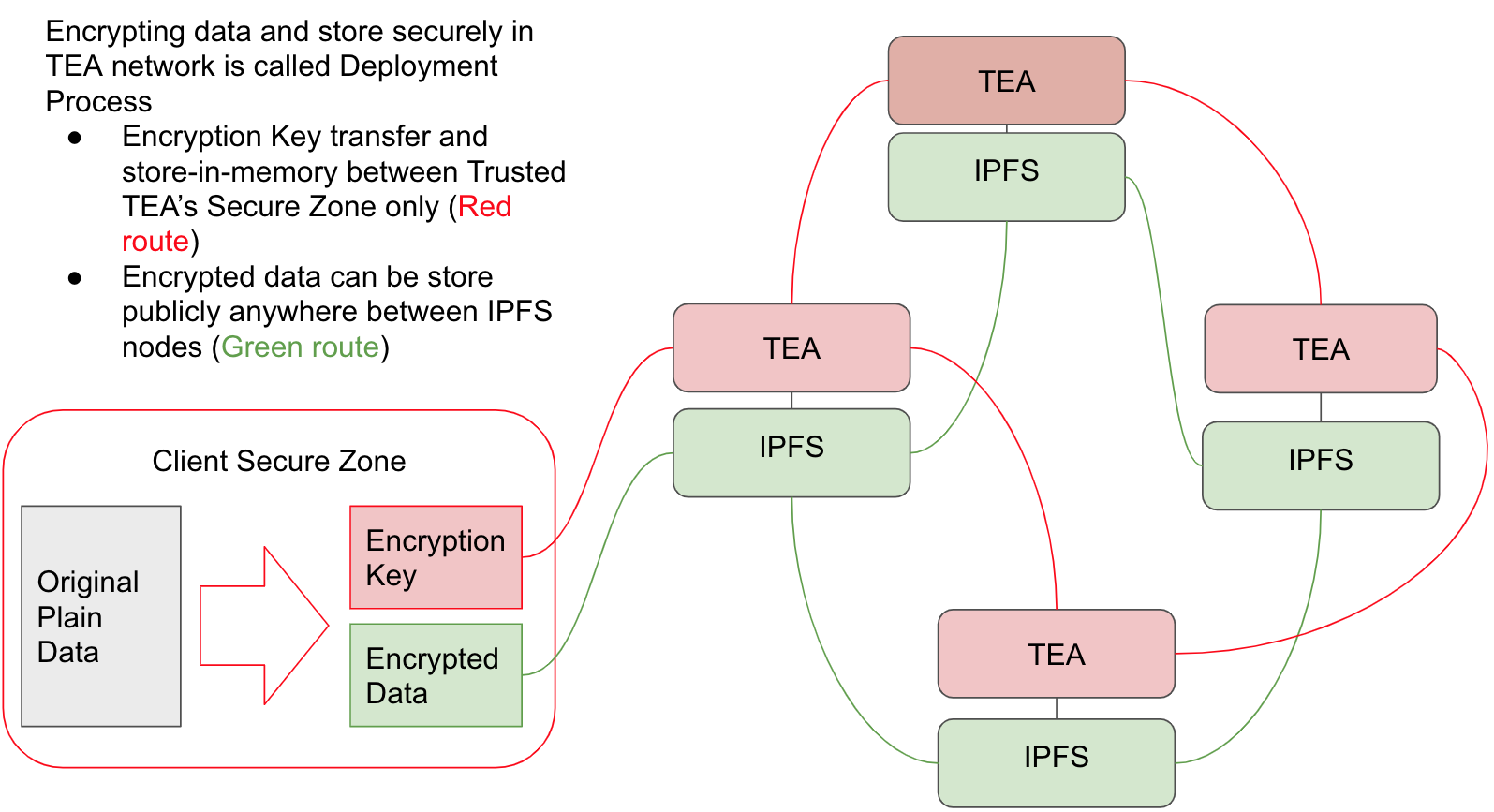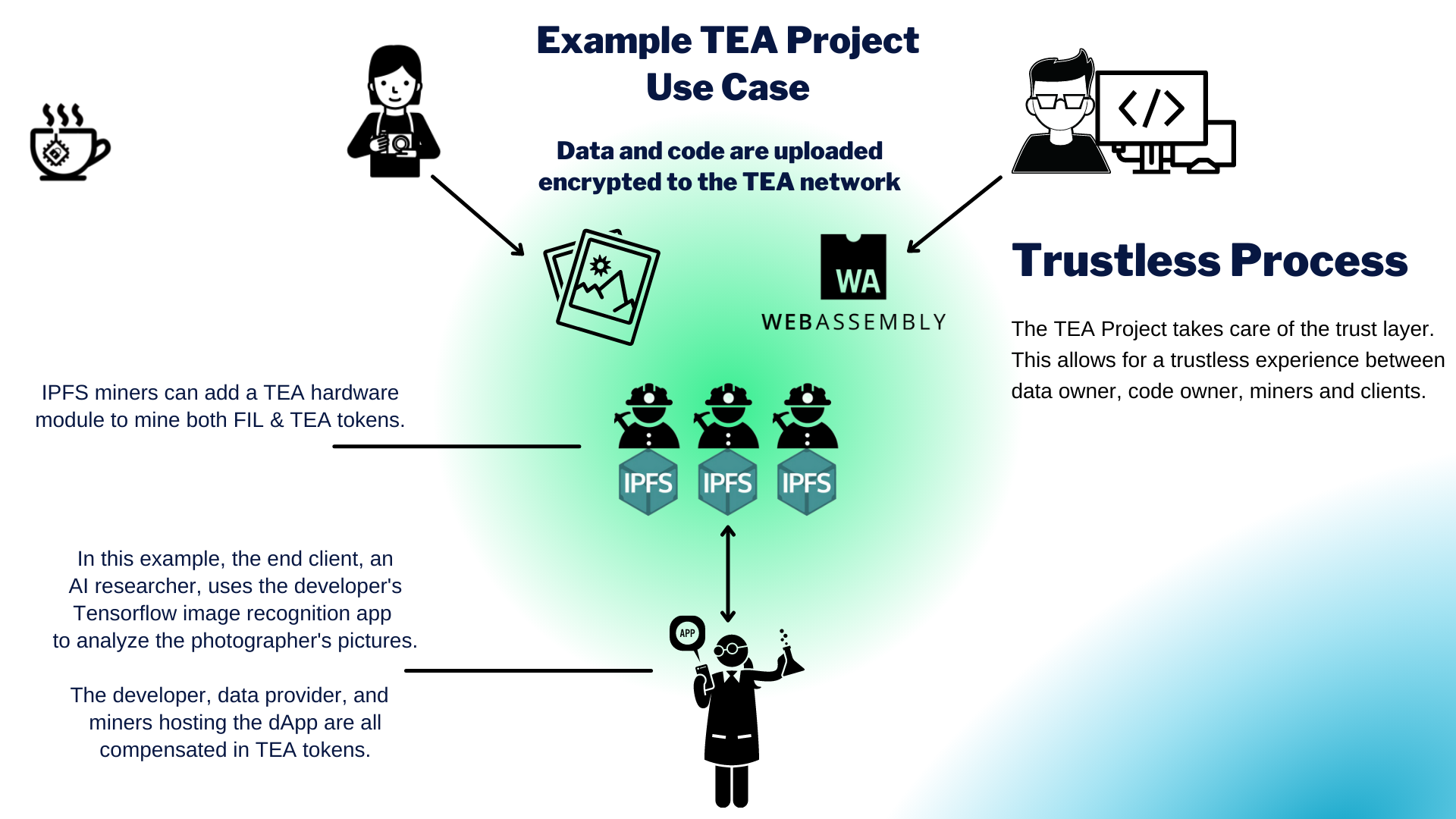
TEA Project
The TEA Project provides a platform where rich, decentralized applications can run at native speeds across a decentralized network of computing nodes. It solves the Blockchain Trilemma by offering a scalable, decentralized, and secure blockchain without compromising any aspect.
The TEA Project builds on many emerging projects and paradigms which in and of themselves are not sufficient to solve the Blockchain Trilemma. Blockchains like Ethereum provide a world computer where smart contracts can run in a decentralized manner. They are further augmented by Web3 innovations like IPFS, a peer-2-peer file system that stores files decentralized. But smart contracts by themselves cannot currently run complex algorithms. Attempts to do so have shown smart contracts to be too slow or too expensive as they lack the processing power compared to modern cloud computers. A layer-2 solution would be needed to offload the computation tasks as long as it could provide a similar trust level as the layer-1 blockchain. By combining blockchain with IPFS and trusted hardware (TPM and GPS modules), the TEA Project achieves scalable speed without compromising security or decentralization.






